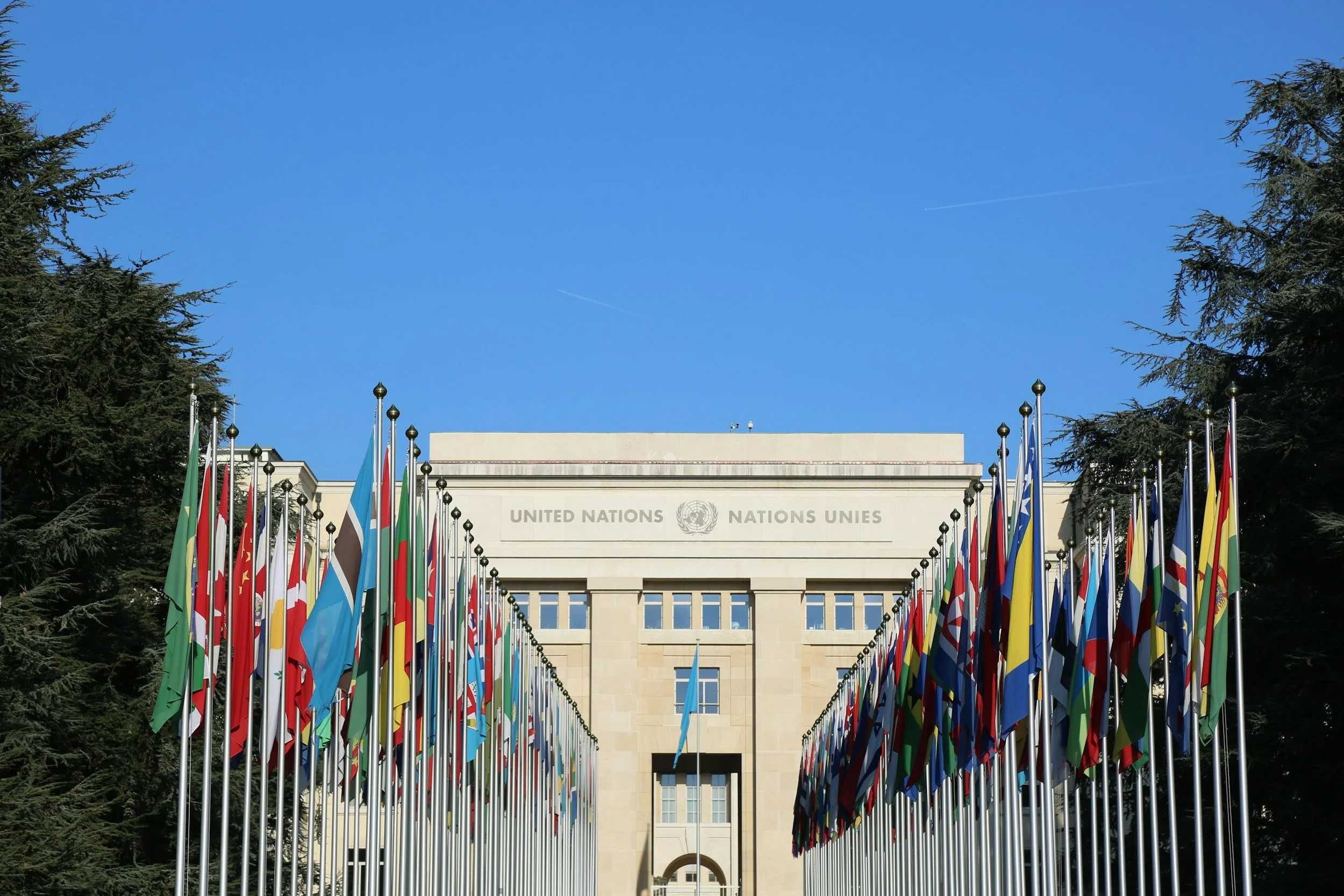By: Nilufer Molla
The purpose of international law is to establish the responsibilities of each state in relation to its conduct toward other countries and its treatment of national and international citizens. The current Israel-Palestine conflict demonstrates the consequences when legal obligations are outlined on paper, but have no real power from major international bodies to enforce or support them.
The 2023 hostilities started when Hamas launched an attack on Israeli settlements, taking 254 hostages and prompting the Israeli Defense Forces (IDF) to take retaliatory action. Since October 7th, 2023, Israel has made continuous efforts to target Hamas; however, the victims have primarily been the civilian population of Palestine, with no assurance of justice or security. What followed has been a conflict that has further escalated into the systematic erasure of the Palestinian people.
Forced displacement, starvation, and bombings that amount to war crimes, crimes against humanity, and, according to legal scholars, genocide, must be addressed. However, we see little to no action taken to hold the perpetrators accountable for such violations. In fact, ceasefire agreements and other international laws continue to be broken by both nations, with one causing more humanitarian damage than the other. For example, after establishing a ceasefire in mid-January 2025, Israel launched surprise attacks in Gaza in March, violating yet another ceasefire agreement. The attacks killed and injured over 1000 civilians, demonstrating the fragility of these agreements when little enforcement exists.
Article 50 of the Fourth Geneva Convention prohibits not only the denial of humanitarian aid, but also the obstruction of its passage. Article 54 of Additional Protocol 1 prohibits starvation as a weapon of war.
However, since May 2024, the UN World Food Programme has reported that roughly 85% of aid convoys to Gaza have been intercepted or blocked by Israeli authorities. And, famine has been confirmed. Ross Smith, the WFP’s Director of Emergencies, described the situation as “clearly a disaster unfolding in front of our eyes, in front of our television screen.” Including numerous other violations, the resulting damage includes but is not limited to the destruction of hospitals, irrevocable malnutrition, long-term famine, and loss of innocent life.
Present international law violations are not an aberration. The Israel-Palestine conflict stretches back generations before October 2023, and ceasefire violations date as early as 1949. Specifically, since its creation, there has been a visible pattern of Israel breaking ceasefire agreements and truces with other countries. Immediately after the Israeli state was created in 1948, it violated the Armistice Agreement by attacking demilitarized zones, resulting in the deaths of numerous Palestinian civilians. Though it must be considered that these actions may have been preemptive in anticipation of an attack, the broader argument is that the absence of enforcement and action towards accountability leads to cyclical violations and violence.
The absence of international humanitarian law is not the main issue; instead, the persisting failure to enforce it is. This pattern of continuous violations is not unique to the Israel-Palestine conflict. The United Nations (UN) often limits itself to condemnation while violence escalates on the ground. Other countries, in the past and present, have also experienced human rights violations without the United Nations’ intervention.
When addressing several present and past Israel-Palestine human rights violations, the United Nations has appeared to only produce reports and non-legally-binding resolutions while urging that Israel’s “military operations must be conducted in strict accordance with international humanitarian law.” While condemnation is a positive step, addresses are not sufficient, especially within such a major international body.
The International Criminal Court (ICC) had finally issued arrest warrants for Israeli Prime Minister Benjamin Netanyahu and the former defense minister in November 2024, after about a decade since the start of the investigation. The warrant was issued over war crimes and crimes against humanity in Gaza; however, no further action has been taken by the ICC. ICC member states are now obligated to arrest those charged when they are in their territory. UN powers appear to be limited, but a modern and more active stance must be taken while lives are at risk.
Since the creation of the UN, the question of Palestine has always existed. The main aspect of the UN offers a forum for discussion on conflict prevention. But even these efforts have experienced continuous pushback from Israel with United States support. While global leaders wait to come to a consensus, thousands of lives have already been lost in the process.
This conflict makes one thing clear: if a country can violate international law, even striking UN agencies themselves, with no consequence, the entire system meant to promote and preserve global peace and security becomes, to an extent, meaningless.

